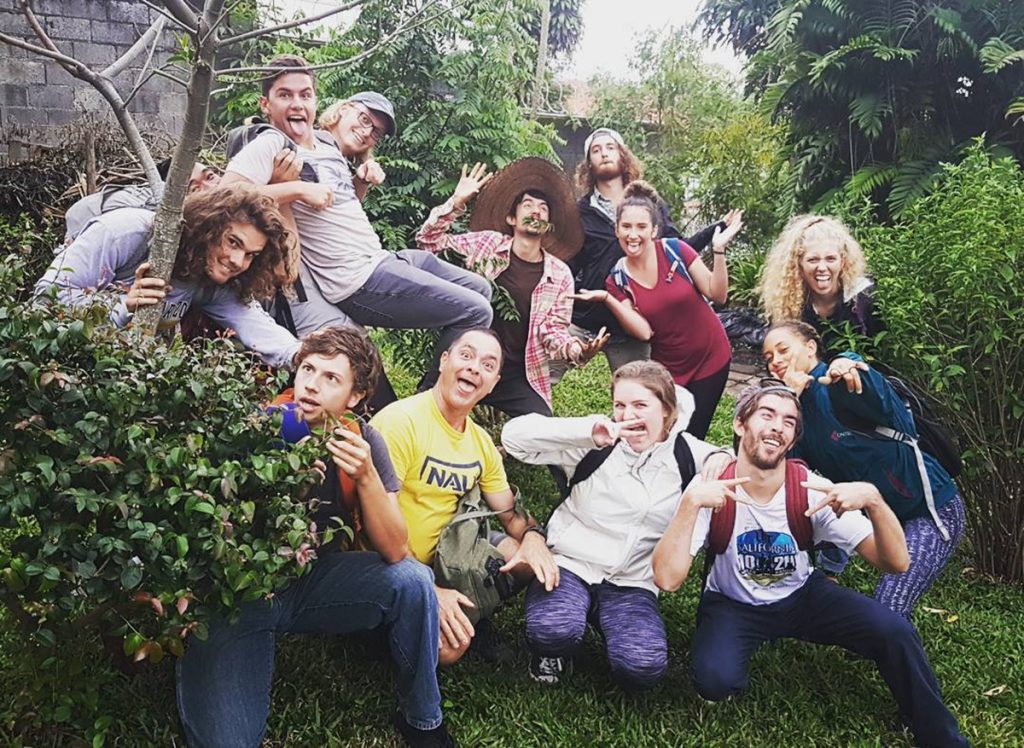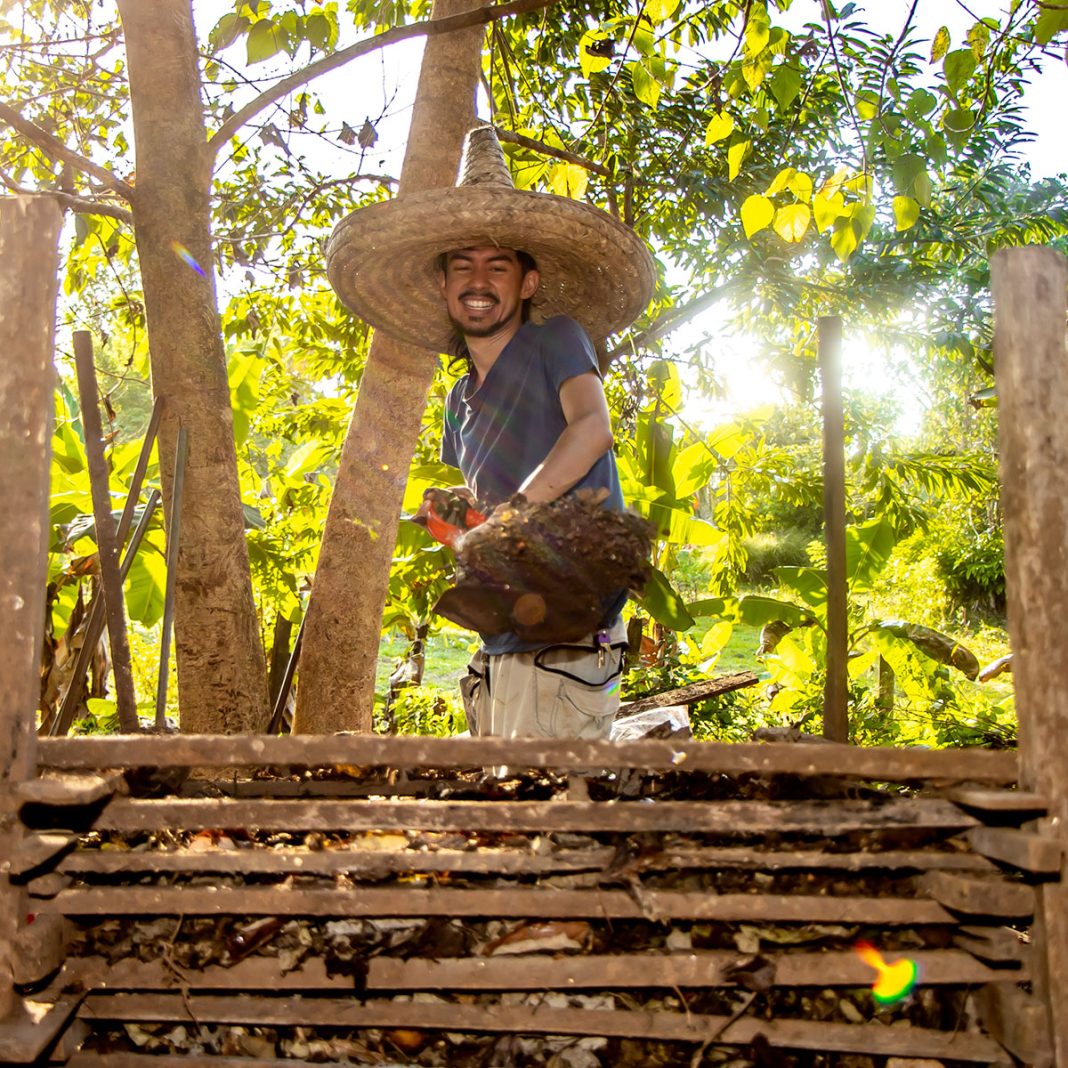Many people think that by starting a garden, they’ll produce lots of vegetables and fruits. They watch videos online or page through books with lovely illustrations and photographs, and they figure it’ll be easy to achieve something similar.
Experience has taught me otherwise.
The only way I see to produce not only our own food, but also ecosystems that provide shelter, health and food for all life, is to work in community. One person is in charge of the corn, squash, and beans, while another person has tomatoes, yucca, and basil. When it is harvested, it is celebrated and shared. Most plants produce so much that we have to invent creative ways of preserving food or distributing it to more people.
The experiences that I’ve had in gardens have gone far beyond saving money on a few bills each month. They’ve taught me about interdependence, not only with other humans but also with nature.
Learning with plants
Alongside plants, I have learned to recognize and value rhythms.
In nature, plants, insects, and animals all have different rhythms. There are plants like cilantro that produce very quickly and can be enjoyed right away, without even cooking. There are trees that take so many years to produce that, if we plant them from seed, we’ll be lucky if we see them bloom in our lifetime.
In life there are some rewards and gifts that we find quickly and frequently; there are others that we may experience only once in a lifetime, or we only get to enjoy a portion of what would be their total enjoyment. These rhythms have a reason for being. If we rush what should be slow, we lose quality or become more volatile. If we slow down what should be fast, we stagnate or shut down.
I have also learned about the importance of diversity.
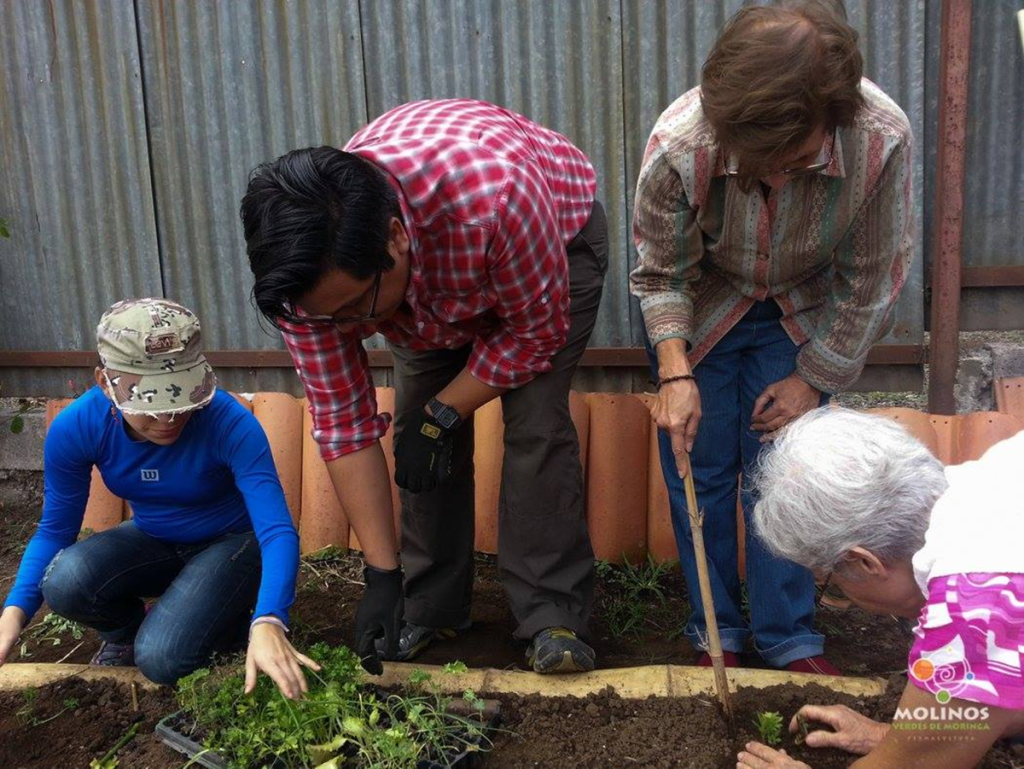
In an orchard, the insects that are flying around have highly developed senses. If we only have one type of plant planted—for example, lots of lettuce—then when the insect flies over, it recognizes the feast and begins to reproduce easily. This is how pests and plant problems start.
If we go to the forest and look around us, there are many plants of different sizes, colors, and smells. Some are underground, some are spread high, some are crawling on the ground. This diversity is what in turn feeds and reproduces, while it regulates and distributes.The less diversity, the more fragile the system becomes. A fire could burn many similar trees. A storm could easily topple tall plants.
Diversity among people is also important for greater resilience. A society that seeks homogeneity is more like a frozen desert: maybe some strong people survive, but there is a lot of loneliness. When we achieve diversity, we are more like a jungle, which can support a lot of life with a lot of abundance.
And the two previous teachings come together in this third one: the importance of collaboration.
In nature, all elements support, self-regulate, and regulate each other as well. In the great forests, the trees on the shore notify the rest when insects come to eat them, so that they generate more repellent or toxic substances. Insects manage to find enough to eat, but not the entire forest. In places where there is some deficiency of nutrients, underground fungi connect and communicate between plants, offering channels that can carry the elements that are needed from one side to the other. That way, the fungi sustain the rest of the ecosystem that protects them, giving them water and shade.
From the beginning I knew that community and collaboration were important. However, seeing examples in nature over and over again have made it clear to me that collaboration is not just important: it is essential.
That teaching translates to our orchards, to our crops, but above all to people. People must connect with our community, and if we don’t feel good, then we have to find a new community. We were not born into a world with seven billion people to do things alone. Also, when we begin to understand the realities of other people we can realize how important our actions are. At the same time we can find opportunities to contribute with others.
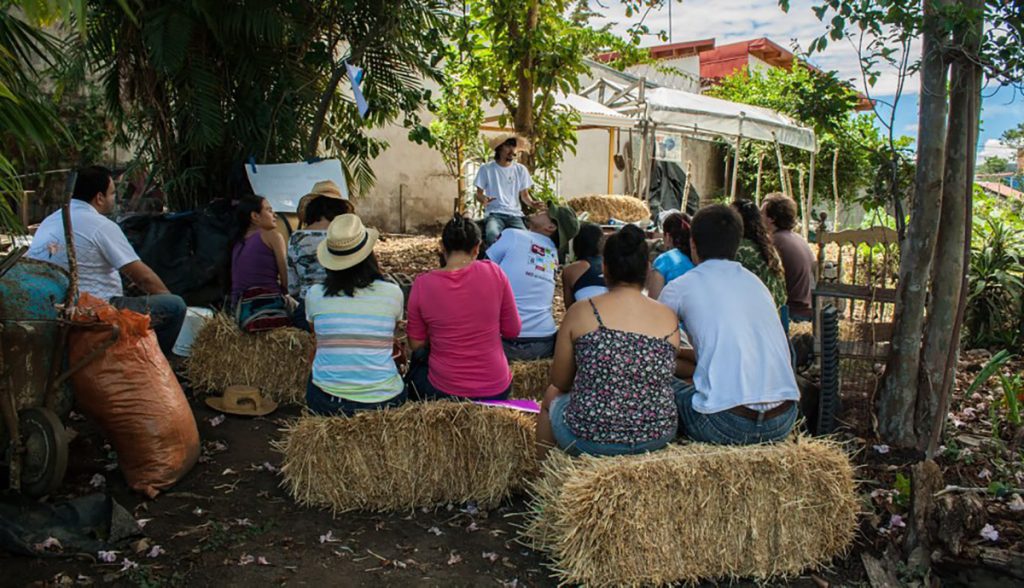
Where to start? Gardens in our lives
Before starting a garden, my recommendation is to start composting at home.
Many people talk about recycling, but the truth is that very little material actually ends up being recycled. Even then, recycling those materials takes thousands of miles of travel and a lot of energy.
Composting helps us realize how much food we waste. In addition, organic waste can make up as much as 60% of our garbage. By converting this waste into organic compost, we not only eliminate a waste management problem in landfills, but we create a fertility opportunity for our garden or that of our neighbors.
Six years ago I started using a dry toilet, which is a system that does not use water. It converts poop into organic fertilizer through a composting process without contaminating the land or water sources. It’s a system that won’t work for everyone, both because of the space required and because of cultural issues. But I have to say that in these six years, I have saved enough water to provide 20 people with at least one liter of drinking water, every day for 10 years.
My next recommendation is: find that community that makes you feel good.
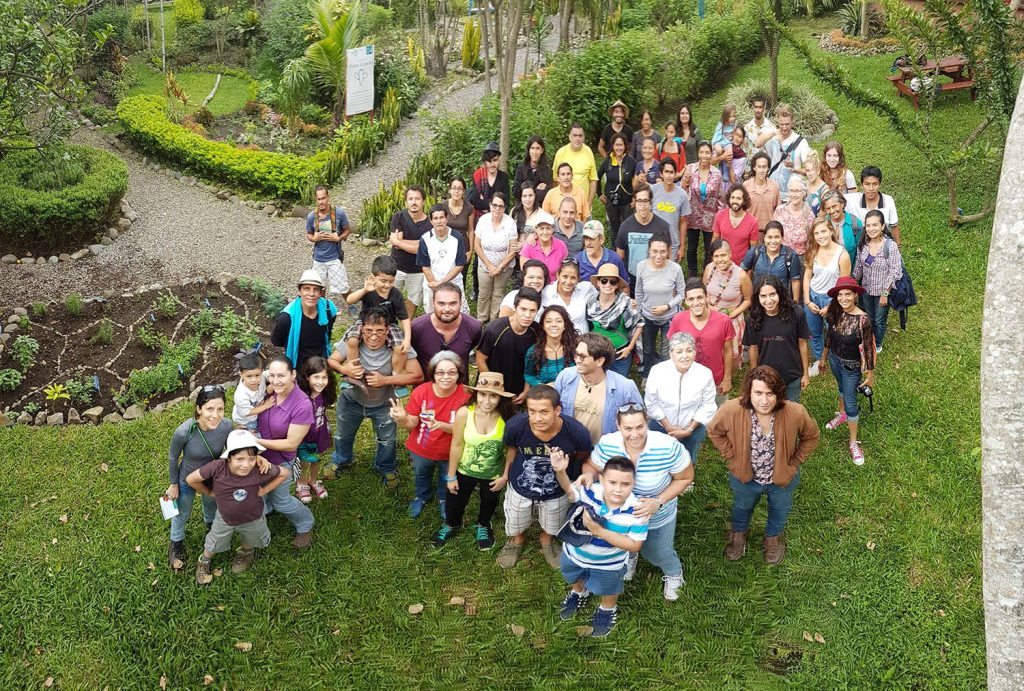
When we founded the Network of Urban Gardens of Costa Rica, I had already experienced a community life and spaces where diversity was valued, where there was abundance, free time to enjoy the people and activities that make us happy. I knew this wasn’t a far fetched dream. I knew that we could start to unite, get to know each other, help each other, and be happier and healthier.
I don’t think that evil dominates this world—not even evil intentions. There are people suffering and doing their best to move on. That’s why, for me, every time I find something that hurts me, I look for a way to transform it so that it helps to heal.
With that philosophy, in the year 2014, I decided to set a little trap. A positive one. I chose a simple name, which appealed to something technical and easy to understand—the “Urban Gardens Network”—while also taking advantage of the growing prominence of the topic at the time.
There are traps that make us fall, but this trap was designed from the beginning to help us grow. What started as a meeting of about 70 people became more than 9,500 people with productive ecosystems throughout the country. But that’s not all we are. We are also a family of people who exchange knowledge, plants, seeds. Without hesitation, we visit each other, support each other, keep each other company.
Sometimes we think that our dreams and ideals, those experiments that we want to try, are absurd, that they would never work or that few would be interested. Leave those doubts behind! We can only achieve this world of respect, empathy and abundance by uniting all the gifts that each one of us has. If you’re still hiding your gift away, I can assure you that there are thousands of people waiting for you.
I’m one of them.
If you would like to join the Red de Huertos Urbanos de Costa Rica in Facebook, follow this link.
